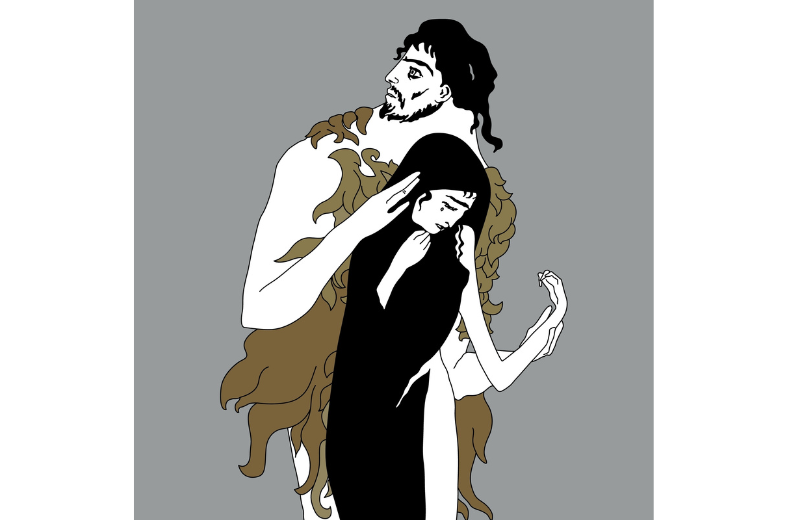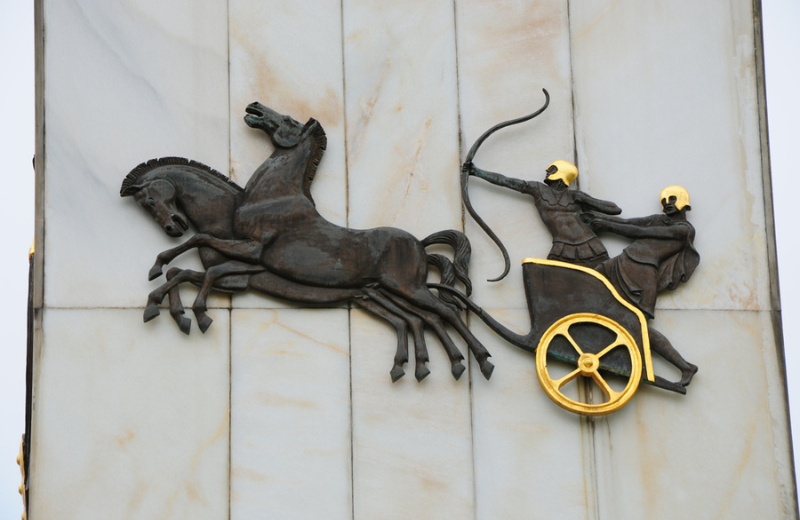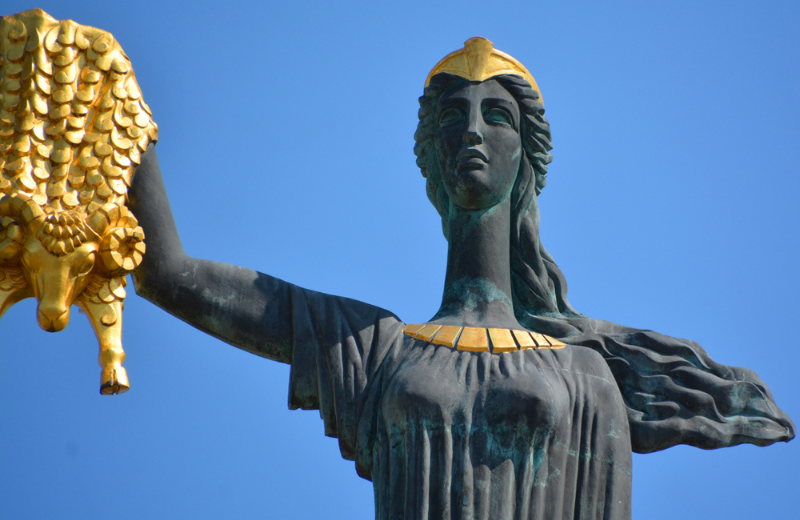Medea is a name that has echoed through the centuries, becoming synonymous with both magic and tragedy. Her tale is one of love, betrayal, and revenge, making her one of the most complex characters in Greek mythology. Whether you’re exploring her narrative for its dramatic themes or its insight into ancient culture, there’s much to discover about Medea.
Jump to:
What Is Medea Known For?
Recommended for you!
Best SellersMedea is most famous for her role in the myth of Jason and the Argonauts, where she helped Jason obtain the Golden Fleece. Known as a powerful sorceress and the princess of Colchis, Medea used her magical abilities to aid Jason, whom she fell deeply in love with.
However, her story doesn’t end with this heroic act. Medea’s tale takes a darker turn when Jason betrays her, leading her to commit a series of shocking actions that have sparked debate and controversy throughout history.
The story of Medea intertwines themes of love and betrayal with power and autonomy. Her character challenges the traditional roles of women in ancient mythology, often depicted as submissive or secondary to male heroes. Medea, on the other hand, wields considerable influence, making choices that, while morally complex, demonstrate her strength and determination.
The Myths and Legends of Medea

Medea's story is filled with passion, betrayal, and vengeance. Here are the key moments that define her role and legacy:
Medea’s Role in the Quest for the Golden Fleece
Medea is best known for her role in helping Jason and the Argonauts secure the Golden Fleece. When Jason arrives in Colchis as part of his mission to reclaim his throne, he meets Medea, the daughter of King Aeëtes and granddaughter of the sun god Helios. She falls in love with Jason and, using her magical abilities, assists him in overcoming the challenges set by her father. Her powerful spells and potions protect him from danger and help him complete the seemingly impossible tasks.
Medea’s Betrayal of Her Family
After successfully securing the Golden Fleece, Medea flees with Jason, turning her back on her own family and homeland. This act of love and sacrifice highlights her loyalty, but it also foreshadows the personal betrayals she will later face. Despite her dedication to Jason, her loyalty is repaid with deceit.
The Tragic Betrayal and Medea’s Revenge
Once settled in Greece, Jason abandons Medea to marry another woman, seeking to elevate his status through a politically advantageous marriage. Feeling betrayed and humiliated, Medea’s grief transforms into rage. In a desperate act of revenge, she commits several shocking deeds, including the murder of her own children. This harrowing act is one of the most infamous moments in Greek mythology, leading many to debate whether Medea is a monstrous figure or a tragic victim of her circumstances.
What Powers Does Medea Have?
Medea’s powers are central to her story. As a sorceress and a priestess of the goddess Hecate, she possesses extensive magical abilities. She is often depicted as a powerful enchantress who can brew potions, cast spells, and summon supernatural forces. These abilities allow her to control and manipulate events around her, such as aiding Jason in his quest and later exacting revenge.
Her magical skills are not limited to her assistance of Jason. Medea’s power is also seen in her ability to rejuvenate others, as shown when she restores the youth of Jason’s father. This magical act demonstrates her command over life and death, setting her apart from other figures in Greek mythology who often rely on physical strength or divine intervention.
The Symbols of Medea
Medea is represented through various symbols that reveal the intense themes of love, betrayal, and revenge. These symbols highlight her complex nature and the emotional depth of her story:
- The Serpent: One of the most significant symbols associated with Medea is the serpent. As the princess of Colchis, she is linked to the dragon that guarded the Golden Fleece. In some versions of the myth, Medea herself is associated with serpents, emphasising her cunning and dangerous nature. In mythology, serpents often symbolise transformation and renewal, which aligns with Medea’s ability to wield powerful, life-altering magic.
- Duality of Medea’s Character: The dual nature of Medea—as both saviour and destroyer—symbolises feminine power and independence. She defies societal expectations, taking control of her destiny and challenging traditional gender roles in mythology. This duality makes her an enduring figure, one who represents both the strength and peril of unrestrained emotions.
Medea’s Relationships, Children, and Family Tree

Medea’s life is deeply intertwined with her relationships, particularly with Jason. These connections shape her actions and reveal the emotional depth of her character:
Medea and Jason: The Betrayal That Defined Her
Medea’s relationship with Jason is central to her story. She sacrifices everything for him—her family, her homeland, and her reputation. However, when Jason betrays her by marrying another woman, it becomes the turning point in her life. This act of betrayal leads to Medea’s drastic and vengeful response, symbolising the devastating effects of broken trust.
Medea as a Mother: The Controversy of Her Actions
Medea’s role as a mother is the most controversial aspect of her story. The murder of her own children as an act of revenge against Jason has sparked debate for centuries. Some view her as a victim of circumstance, driven to madness by her lover’s infidelity, while others see her as a monstrous figure who allows her rage to overpower her maternal instincts.
Medea’s Lineage: A Family of Power and Magic
Medea’s heritage plays a significant role in her abilities and influence. She is the granddaughter of Helios, the sun god, which situates her within a lineage of divine power. Her father, King Aeëtes, and her aunt, the sorceress Circe, connect her to other magical and influential figures in Greek mythology, further highlighting the source and strength of her magical powers.
Medea’s Worship and Legacy
Despite the tragic and controversial nature of her story, Medea was worshipped in some regions as a goddess. In Corinth, a sanctuary was dedicated to her, where she was revered for her magical abilities and her role in mythology. The people of Corinth viewed her not as a monster but as a powerful figure deserving of respect.
Medea’s legacy has also inspired countless works of art, literature, and drama over the centuries. Euripides’ play Medea is one of the most famous adaptations, portraying her as both a sympathetic and terrifying character. Her story has been interpreted through various lenses, including feminist perspectives that view her as a symbol of female empowerment and autonomy.

Frequently Asked Questions About Medea in Mythology
Was Medea a Goddess or a Mortal?
Medea was not a goddess, but she was a powerful mortal sorceress with divine ancestry. As the granddaughter of Helios, the sun god, she possessed a unique lineage that endowed her with supernatural abilities. Medea was also a priestess of Hecate, the goddess of witchcraft, which further enhanced her magical powers.
Why Is Medea Considered Controversial?
Medea is controversial primarily due to her extreme actions, especially the murder of her children as revenge against Jason. Her story challenges traditional moral values, leading some to see her as a victim driven to insanity by betrayal, while others view her as a ruthless figure who crosses the line between justice and cruelty. Her complexity makes her a figure of fascination and debate in Greek mythology.
What Is the Main Message of the Story of Medea?
The story of Medea explores the destructive power of love and betrayal. It shows how deep emotional pain can lead to unimaginable actions, raising questions about the nature of revenge, justice, and morality. Medea's narrative also highlights the theme of autonomy, as she takes control of her fate, even if her choices are morally ambiguous.
Did Medea Ever Regret Her Actions?
Different interpretations of the myth offer various perspectives on whether Medea felt remorse. In some versions, she appears unrepentant and confident in her actions, believing they were necessary to make Jason suffer. However, other adaptations, such as Euripides' play, hint at Medea's internal struggle and the emotional toll her decisions take on her, leaving the question of her regret open to interpretation.
Is There a Feminist Interpretation of Medea?
Many feminist interpretations view Medea as a symbol of female empowerment and autonomy. Despite her morally complex actions, Medea is portrayed as a woman who refuses to accept her fate passively. She challenges the societal expectations placed on women, taking control of her destiny and making her own choices, regardless of their consequences. Her character invites discussions about the limitations imposed on women in ancient societies and the lengths some may go to reclaim their power.
Who Did Jason Marry After Medea?
After abandoning Medea, Jason marries Glauce, also known as Creusa, the daughter of King Creon of Corinth. This marriage is politically motivated, as it offers Jason an opportunity to secure power and status. However, his betrayal of Medea leads to tragedy, as she takes revenge not only on him but also on Glauce, resulting in her death.
What Happened to Medea After Her Revenge?
After taking revenge on Jason, Medea flees Corinth. In some versions of the myth, she escapes on a chariot sent by her grandfather, Helios, symbolising her divine protection and powerful lineage. Her later life is filled with more adventures and alliances, including a marriage to Aegeus, king of Athens. However, her actions in Corinth follow her, and her story continues to highlight the consequences of her choices.
What Is the Significance of Medea’s Hubris?
Medea’s hubris, or excessive pride, is a key element in her story. Her refusal to accept betrayal or injustice without retribution shows her belief in her own power and autonomy. However, this pride is also her downfall, as it leads her to commit extreme actions that forever change her life. Medea’s hubris is a reminder of the dangers of unchecked power and passion, and the consequences of allowing pride to drive one’s decisions.
Recommended for you!
Best SellersStudy Greek Mythology for £29
Medea’s story addresses universal themes—love, power, betrayal, and revenge. If you’d like to learn more about these myths and explore the characters, symbols, and stories that have shaped Western culture, consider enrolling in the Greek Mythology Diploma Course with Centre of Excellence. For a limited time, you can access the course at a discounted price of £29!













